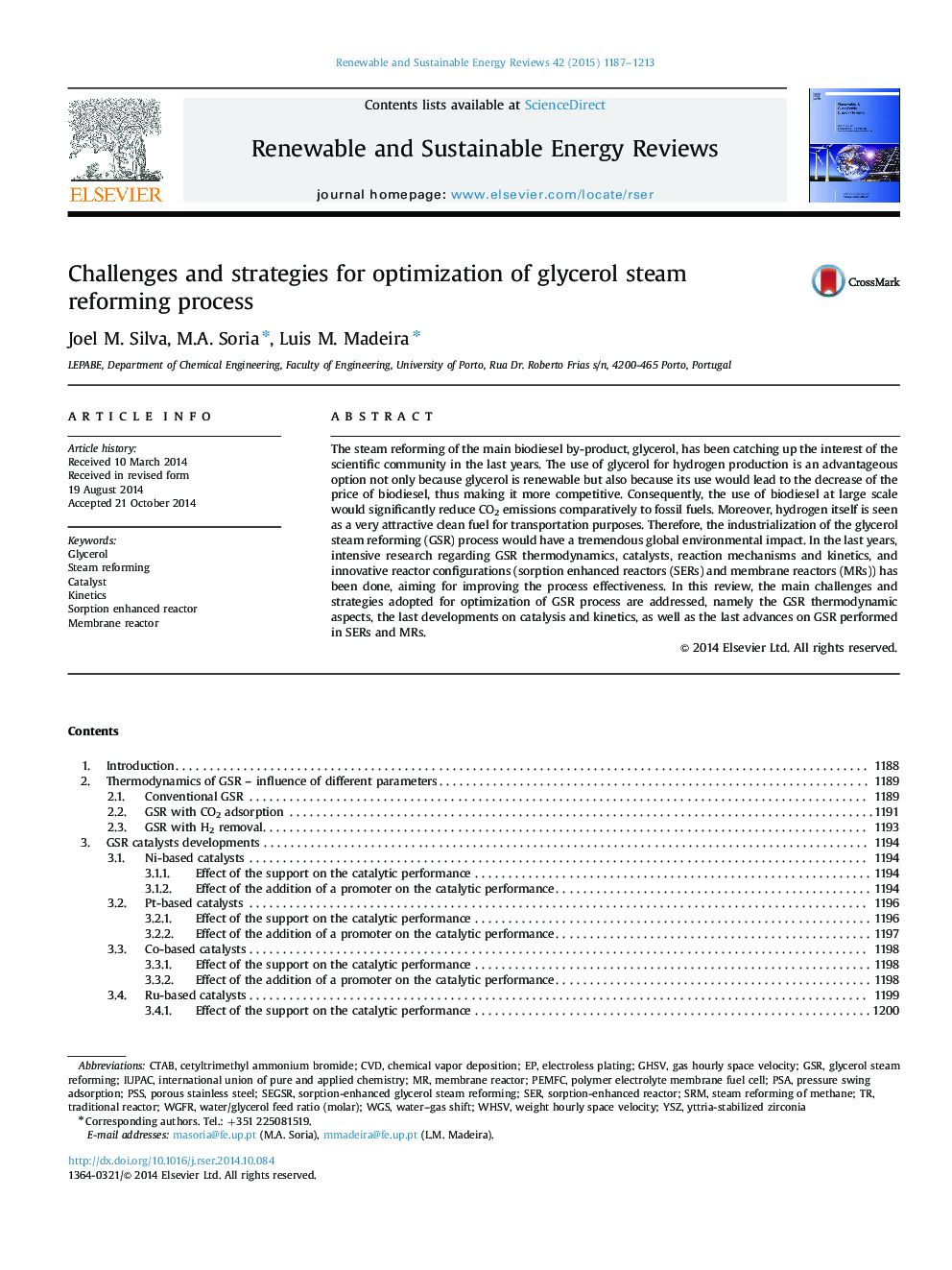| Article ID | Journal | Published Year | Pages | File Type |
|---|---|---|---|---|
| 8118174 | Renewable and Sustainable Energy Reviews | 2015 | 27 Pages |
Abstract
The steam reforming of the main biodiesel by-product, glycerol, has been catching up the interest of the scientific community in the last years. The use of glycerol for hydrogen production is an advantageous option not only because glycerol is renewable but also because its use would lead to the decrease of the price of biodiesel, thus making it more competitive. Consequently, the use of biodiesel at large scale would significantly reduce CO2 emissions comparatively to fossil fuels. Moreover, hydrogen itself is seen as a very attractive clean fuel for transportation purposes. Therefore, the industrialization of the glycerol steam reforming (GSR) process would have a tremendous global environmental impact. In the last years, intensive research regarding GSR thermodynamics, catalysts, reaction mechanisms and kinetics, and innovative reactor configurations (sorption enhanced reactors (SERs) and membrane reactors (MRs)) has been done, aiming for improving the process effectiveness. In this review, the main challenges and strategies adopted for optimization of GSR process are addressed, namely the GSR thermodynamic aspects, the last developments on catalysis and kinetics, as well as the last advances on GSR performed in SERs and MRs.
Keywords
YSZSorption-enhanced reactorWHSVIUPACGSRGHSVWGSPSAPSSCTABPEMFCSRMInternational Union of Pure and Applied ChemistryCetyltrimethyl ammonium bromideSteam reformingSteam reforming of methaneElectroless platingSERWater–gas shiftpressure swing adsorptionMembrane reactorChemical vapor depositionCVDGlycerol steam reformingYttria-stabilized zirconiaWeight hourly space velocitygas hourly space velocityPolymer electrolyte membrane fuel cellKineticsPorous stainless steelCatalystGlycerol
Related Topics
Physical Sciences and Engineering
Energy
Renewable Energy, Sustainability and the Environment
Authors
Joel M. Silva, M.A. Soria, Luis M. Madeira,
